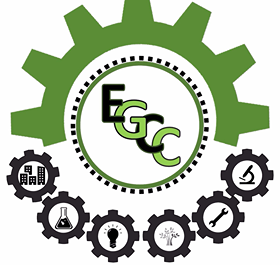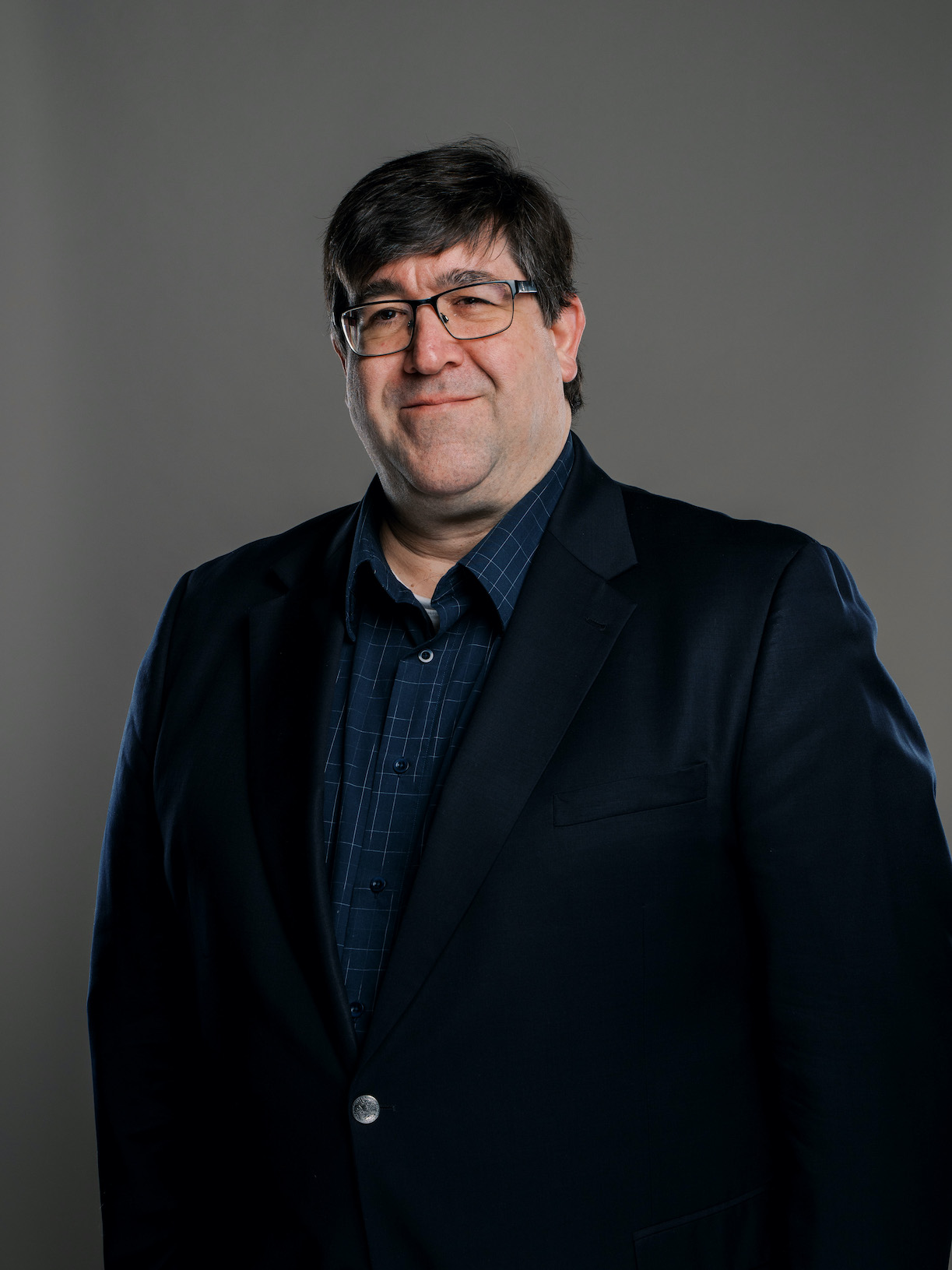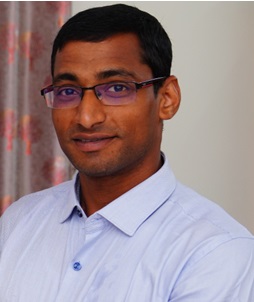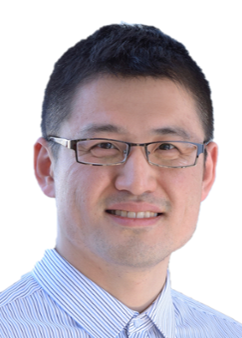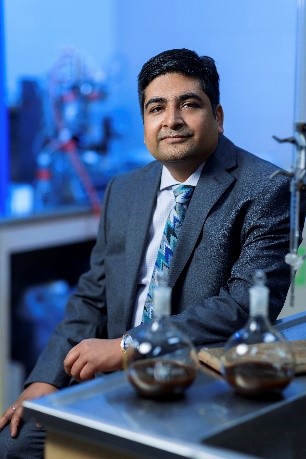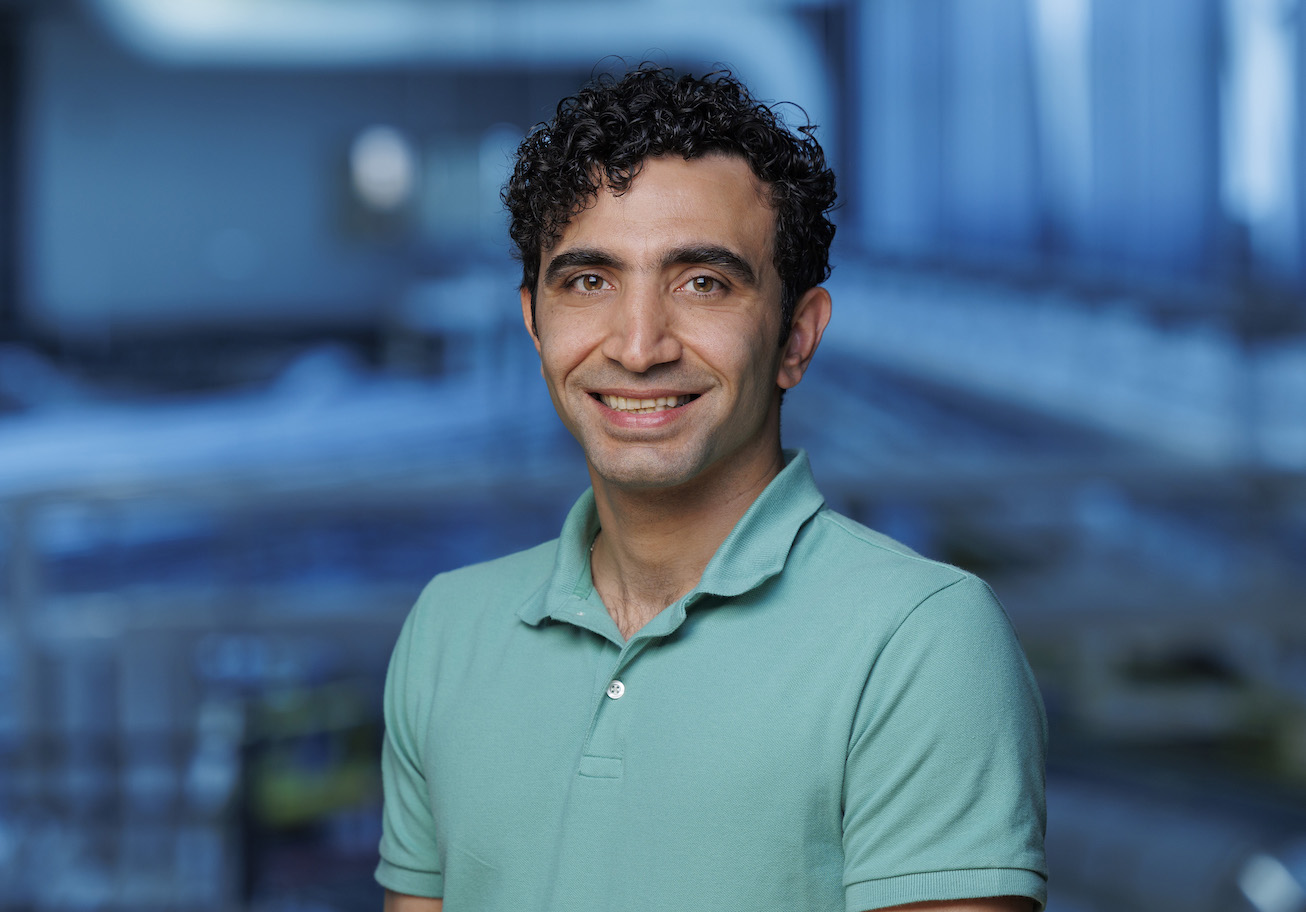5th Engineering 3 Minute Thesis (E3MT) Competition
The Engineering Graduate Community Council (EGCC) invites you to participate in the 2024 Three Minute Thesis (E3MT) Competition of the College of Engineering with a total prize of up to $2,000.
The 5th E3MT competition will be held in-person on March 1 2024. This year's competition will be held in Engineering Library from 11 a.m. to 4 p.m. The event would not be possible without the support from the Engineering Advancement Trust (EAT), the Graduate student's association (GSA), SaskPower, OPUS, SIGMA, Tidewater and Red Leaf. All participants will present their research work and will compete for 1st, 2nd, 3rd, 4th, and 5th place in addition to a people's choice prize. Participants from all departments within the College of Engineering are invited, which will prepare students for the GSA and the regional 3MT®️ competitions.
- Prizes: Besides 6 main prizes, all participants will receive a package of gifts for their recognition.
- 1st: $700
- 2nd: $500
- 3rd: $300
- 4th: $200
- 5th: $150
- Audience choice: $150
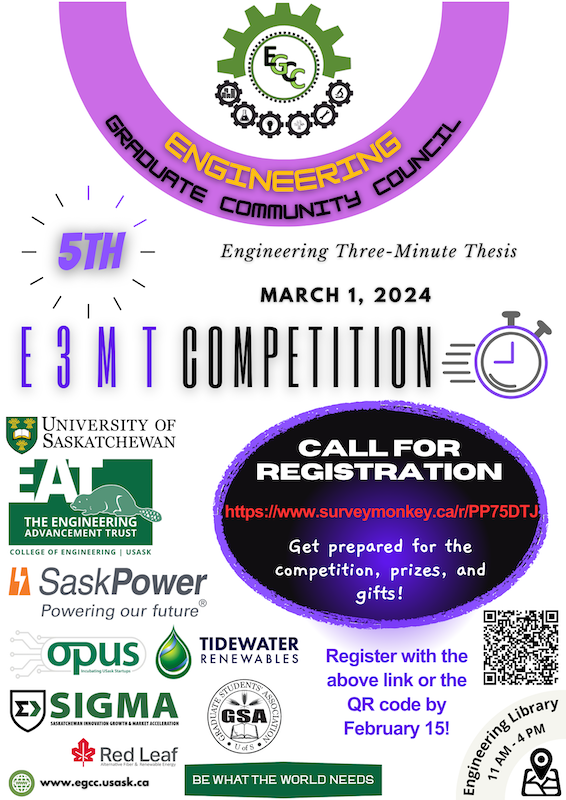
E3MT Handbook and Agenda
Engineering graduate students interested in participating in this year’s E3MT Competition must submit abstracts that are no longer than 350 words.
- Eligibility: All Engineering graduate students (Master & Ph.D.)
- Instruction:
- All you need to do is to fill up a registration form: https://www.surveymonkey.ca/r/PP75DTJ, send us your abstract (max. 350 words), and prepare a 1-SLIDE presentation for the event day.
- Academic and industrial judges will evaluate the winners based on communication skills, rather than research quality or results.
For competition rules and judging criteria click here.
Here is the 2022 full event Live stream on our YouTube channel:
|
|
Duncan Cree, Ph.D., Associate Professor Dr. Duncan Cree obtained his B.Eng., MEng and Ph.D. degrees in Mechanical Engineering from Concordia University, in Montreal. During the summer he worked at various aerospace companies such as Pratt & Whitney Canada, Bombardier Aerospace and the National Research Council of Canada (NRC). He later went on to pursue a two-year NSERC Postdoctoral Fellowship at Queen’s University in Kingston, Ontario in the Civil Engineering department. He was then hired on a three-year contract (non-renewable) as an Assistant Professor at Queen’s University. In November 2014 he joined the Department of Mechanical Engineering at the University of Saskatchewan as an Assistant Professor. He is currently a tenured Associate Professor. His research interests are in the area of materials science, specifically understanding the mechanical behavior of engineering materials. Addressing the challenges of sustainability using waste as resources is a major area of research.
|
|
|
Christopher Bowman, Ph.D., Technology Transfer Manager, University of Saskatchewan Chris holds a Ph.D. in applied mathematics from the University of Arizona and has extensive experience in supporting research commercialization and collaboration in academic, government, and private sectors. He has been a technology transfer manager at U of S for seven years, he focuses on finding, or developing partners that can take university IP and advance it to market-ready products or services. He is responsible for an expanding portfolio including Engineering, Physical Sciences, Information and Communications Technologies and Agriculture.
|
|
|
Jordan F. Humeny, P.Eng., PMP., LSSGB, Engineer, Distribution Engineering Program Work, SaskPower Jordan attended the University of Regina where he received a bachelor’s degree in Industrial Systems Engineering, graduating with Great Distinction, and the Gold Medal from the Canadian Association of Mechanical Engineers. Immediately upon completion of his studies he began working in the industrial construction industry as a Field Engineer, then Quality Control Manager in the potash and hydropower sectors. After developing key skills in construction and project management Jordan moved into the crown sector and undertook a role which better applied the technical and theoretical skills learned from his education. The technical skills developed through the application of Engineering design, coupled with the Project Management skills honed from his time spent working in the field lead him down the path to where he has spent the last four years; program and portfolio management – first with SaskEnergy and now with SaskPower in Saskatoon. Both on and off the job Jordan has a passion for program and portfolio management as planning, budgeting, and building a brighter future are his constants. When fiscal responsibility is not in focus, Jordan can be found running, weightlifting, or working on the restoration of his 1986 Boston Whaler. |
|
|
Venu Babu Borugadda, Ph.D., Manager, Research & Development, Tidewater Renewables Dr. Venu Babu Borugadda is currently serving as the Manager for Research and Development at Tidewater Renewables Ltd. in Calgary, he plays a pivotal role in advancing the company's focus on producing low-carbon liquid (Renewable Diesel) and gaseous (Renewable Natural Gas - RNG) fuels. In addition to his role at Tidewater Renewables Ltd., Dr. Borugadda also works as a part-time research associate at the University of Saskatchewan's Department of Chemical and Biological Engineering, working in Professor Ajay K Dalai’s research lab. His responsibilities include spearheading R&D efforts aimed at developing economically viable commercial biocrude production technology through a thermo-chemical approach, leveraging promising agroforestry residues. Besides, he is working on the development of novel technologies to enhance the efficiency of bio-digesters for RNG production via anaerobic digestion and co-digestion techniques. Dr. Borugadda's multifaceted background in advancing renewable energy technologies makes him a valuable asset to both academia and industry, driving forward the transition to a more sustainable energy future. Dr. Borugadda's expertise encompasses various facets of renewable energy and biofuel production, including the synthesis of bio-lubricants, catalyst development, and the production of carbon-neutral gaseous and liquid fuels through thermo-chemical conversion technologies. He received a Ph.D. degree from the prestigious Indian Institute of Technology, Guwahati, India, in 2016. |
|
|
Tate N. Cao, P.Eng, MBA, Assistant Professor Tate N. Cao is an Assistant Professor in the Ron and Jane Graham School of Professional Development at the University of Saskatchewan. He is the La Borde Chair in Engineering Entrepreneurship and teaches courses on engineering technology management, product design, and entrepreneurship. His research interests include 3D printing in tissue engineering and healthcare, smart farming technologies, and entrepreneurial practices. He has founded and directed the SIGMA Educational Skill Accelerator program and serves on several boards, including the Asian American Innovation Alliance, Co. Learn, Tech Innovation and Engineering Entrepreneurship group at CEEA, and the Pan Canadian Smart Farm Network. Prior to joining USask, he practiced intellectual property law and built and managed startup companies. Prof. Cao received his bachelor's degree in Biomedical Engineering from the Beijing Institute of Technology and his Master's in Biomedical Engineering and MBA from the University of Saskatchewan. He is one of the six USask Sustainability Faculty Fellow and leads the Smart Farming Initiative at the College of Engineering.
|
|
|
Bishnu Acharya, Ph.D., Saskatchewan Ministry of Agriculture Chair in Bioprocess Engineering, Associate Professor Dr. Bishnu Acharya is an Associate Professor in the Department of Chemical and Biological Engineering at the University of Saskatchewan and the Saskatchewan Ministry of Agriculture Research Chair in Bioprocess Engineering. His research expertise lies in the area of bioprocessing and conversion, particularly in the emerging area of conversion of biomass to bioproducts for chemical, material, and energy applications by adopting a circular bioeconomy approach. Dr. Acharya’s research investigates biomass characterization, thermochemical (torrefaction, hydrothermal, pyrolysis, gasification, combustion), biological (fermentation and anaerobic digestion) and chemical synthesis processes for the conversion of low value biomass to high value bioproducts. He is also developing research capacity to analyze the biopolymer and biobased materials at the University of Saskatchewan. Before joining University of Saskatchewan, he worked at the University of Prince Edward Island. Prior to that he worked for Greenfield Research Incorporated in Halifax, Canada as General Manager - Projects where he led several design and training projects for the development of clean technology. Dr. Acharya is awarded with Engineers PEI – Engineering Excellence Award (2019) for his professional contribution towards the development of innovative bioproducts from nuisance biomass. His scholarly achievements are recognized with UPEI Faculty Association - Scholarly Achievement Award (2019), and Graduate Faculty Appreciation Award (2018). Dr. Acharya research work has been published in 5 book chapters, 70 journal articles and several conferences. He has 1 US provisional patent filed (with another under consideration). In last 7 years, he has supervised/co-supervised more than 40 HQP and has received around 3 million dollars of funding to support his research activities. Dr. Acharya is also a founding member and scientific advisor of a spin off company that focuses on the commercialization of tunicate-based cellulose nanomaterials. He has bachelor’s degree in Mechanical Engineering from Tribhuvan University - Nepal, Masters in Energy Technology from Asian Institute of Technology – Thailand and Doctoral Degree in Mechanical Engineering from Dalhousie University – Canada. |
|
|
Mohsen Shakouri, Ph.D., Scientist - Beamline Responsible, Canadian Light Source Dr. Mohsen Shakouri is a scientist overseeing the Soft X-ray Microcharacterization beamline (SXRMB) at CLS. He also serves as an adjunct professor in the Chemical and Biological Engineering Department at the University of Saskatchewan. With over a decade of expertise, he specializes in the development and synthesis of structured nanomaterial catalysts. His proficiency extends to designing lab-scale test setups for catalyst evaluation and proficiently operating diverse analytical instruments. Profoundly skilled in X-ray spectroscopy, microscopy, and crystallography, he delves into unraveling materials' chemical structures. Driven by a passion for hands-on experimentation, he enjoys every aspect, from conceptualization to data interpretation. He holds a BSc in Chemical and Petroleum Engineering from the Sharif University of Technology and earned MSc and PhD degrees from the University of Saskatchewan. In his free time, he enjoys cooking, music, and sports.
|
|
|
|
1st place:
Ayowolemiwa Victor
2nd place:
Priyanka Tirumareddy
3rd place:
Dinesha Thuvaragan
4th place:
Yesu Ramya Kandregula
5th place:
Surbhi Takyar
Audience Choice:
Hossein Nezhadian
| # | TIME | Name | Title |
| 1 | 11:20 | Saeideh Razavi | Development of a Curling Rock Launcher to Improve Curling Research and Performance |
| 2 | 11:25 | Ravi Patel | Bioadditives in Concrete |
| 3 | 11:30 | Seyedali Hashemikouchaksaraei | Use of Pulse Starch for Lactic Acid and Ethanol Production through Microbial Fermentation Route |
| 4 | 11:35 | Priyanka Tirumareddy | Production of Biofuels from Agricultural Wastes |
| 5 | 11:40 | Corwyn Shomachuk | Hydrological Modelling |
| 6 | 11:45 | Bashu Gautam | Anerobic Digestion of Agro-biomass |
| 7 | 11:50 | Dinesha Thuvaragan | Pulse Starch-Bsed Bioplastic Production |
| 8 | 11:55 | Ayowolemiwa Victor | Synthesis and Characterization of Antimicrobial Silver doped and Copper doped Diamon like Carbon (DLC) |
| 9 | 12:00 | Lily Delamare | Bioremediation of Sodic Hydrocarbon Contaminated Environments |
| 10 | 12:05 | Sumana Majumder | Cellulose Nanocrystal and Application in Pickering Emulsion |
| 11 | 12:10 | Amirreza Mahmoudi | Frosting in Energy Exchangers |
| 12 | 12:15 | Shaheli Sachintha Senanayake | Factors Influencing Road Safety at Urban Signalized Intersections in Saskatchewan |
| 13 | 12:20 | Oluwadamilare Alege | Effects of Cold Plasma Application on Cannabis Seeds for Germinability Improvement and Pathogen Elimination |
| 14 | 12:25 | Rahman Zeynali | Biogas Production - Environmental and Wastewater Treatment |
| 15 | 12:30 | Bahman Mohammadkhani | Catalysts |
| 16 | 12:35 | Asutosh Dalai | Utilization of Lignin for the Development of Biodegradeable Adhesives |
| 17 | 12:40 | Sara Nath | Transforming Waste into Fuel: A Sustainable Solution to Energy Demand and Environmental Challenges |
| 18 | 1:20 | Anahita Homavand | Sustainable Polymer Composites from Waste Eggshells for Practical Applications |
| 19 | 1:25 | Ifeyomi Olobayotan | Bioproducts Development |
| 20 | 1:30 | Jin Zhu | New Medium Formulation for 1,3 - Propanediol Production in Fermentation Process |
| 21 | 1:35 | Lauryn Campbell | Understanding Shoulder Movement and Injury: A Model-Based Approach |
| 22 | 1:40 | Md. Mamun | MLAFP-XN: Leveraging Neural Network Model for Development of Antifungal Peptide Identification Tool |
| 23 | 1:45 | Siddhartha Gollamudi | Frost-free Air Source Heat Pumps |
| 24 | 1:50 | Sona Kamali Miab | Microwave Assisting Heating in Catalytic Reaction |
| 25 | 1:55 | Ganapathy Subramanian Meenakshi Sundaram |
Application of Tribo-Electrostatic Separation in Dry Fractionation of Food Materials |
| 26 | 2:00 | Farzan Hayati | Using Inexpensive Biochar Based Photocatalysis Material for Stormwater Decontamination |
| 27 | 2:05 | Hossein Nezhadian | Optimal Operation of Integrated Power and Gas Networks using GAMS |
| 28 | 2:10 | Shabnam Izadpanah | Pea Protein Off-Flavour Removal using Ultrasonic Cavittion |
| 29 | 2:15 | Daniel Hamilton | Mineral Processing |
| 30 | 2:20 | Yesu Ramya Kandregula | Synthesis of Bio-based Materials from Biomass |
| 31 | 2:25 | Alimul Haque Khan | Wireless Sensor Technology |
| 32 | 2:30 | Surbhi Takyar | Transforming Eggshell Waste: A Sustainable Solution |
| 33 | 2:35 | Ramesh Kalagnanam | Biocrude from Forest Product Residue |
| 34 | 2:40 | Tahmid Ibn Sayeed |
Feasibility of an Absorption Heat Pump in Cold Climate Considering Effects of Frosting |
